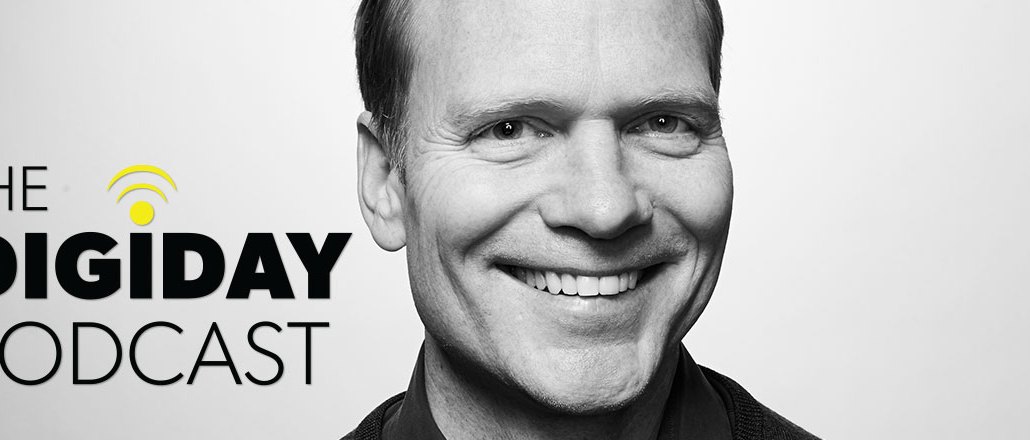Secure your place at the Digiday Publishing Summit in Vail, March 23-25

Subscribe: iTunes | Stitcher | RSS
Vox Media — home to digital media brands like SB Nation, The Verge and Eater — has its roots in an era when the website was the disruptive force in publishing.
It’s a different time now compared to when SportsBlogs came into existence in 2005. These days, publishers like BuzzFeed and Vox itself reach far more people on platforms than on their own sites. That presents a challenge for a company like Vox Media, which long prided itself on a proprietary tech platform for managing multiple large properties.
“We’ve come so far, so fast from websites being the disruptive entity to a world where people are talking about websites as a nice thing of the past,” said Marty Moe, president of Vox Media, on this week’s episode of the Digiday Podcast. “Vox has been culturally and systematically based on change and on figuring out what’s the most successful path to take. At the time, it was being able to publish multiple big websites efficiently. Now the big challenge is, how do you best deal with this multi-platform world?”
Below are highlights of the episode.
A big challenge for platforms is organization.
There are many questions around the business strategies and tech hurdles for publishers in adapting to platforms like Facebook and Snapchat. But perhaps as big of a challenge for a multi-brand publisher like Vox is how to organize internally. That usually means deciding what to centralize to be more efficient while preserving the audience focus each brand brings to the table.
Vox, for instance, has its brands all handle video in their own way, while centralizing some of the production and tech. But with long-form video that can live as TV programming, Vox has a centralized unit, Vox Entertainment. It has a five-person Snapchat Studio that programs a Discover channel that will run across Vox’s brands. The key is to have a culture that adapts, Moe said.
“The forces of centralization and the forces of distribution are not alien,” he said. “There is this puzzle that you continually have to figure out.”
Vox views TV as another platform.
Digital media companies are now squarely focused on taking their content focus and trying to retrofit it for TV. Part of the drive for this is obviously business model driven: Nobody is getting rich off banner ads. But a big part, according to Moe, is simply the advancement of tech platforms that allow for over-the-top distribution. Vox is making its first foray into TV with A&E’s FYI. “Prefabulous” is a show about prefabricated housing created by Vox real-estate title Curbed.
“The broader picture for us is we view TV as another platform,” Moe said. “We view ourselves as a brand company, not a website company, and a company that’s developing our expertise on bringing our brands to all the right platforms in ways that work for those platforms.”
International isn’t a focus.
Unlike big digital media peers such as BuzzFeed, Business Insider and The Huffington Post, Vox has remained focused on the domestic market, despite 35 percent of its traffic coming from outside the U.S. It hasn’t done licensing deals or opened localized versions of its brands in other countries. Mostly, this is a function of focus. Right now, Moe said, it sees too many opportunities in the U.S. market to make a concerted push abroad.
“Dollars invested in the U.S. market for things like video and platforms are still substantially higher than global investment dollars,” said Moe. “The question is, how much room is there for new websites to take big share? And even if you could take a significant share, how much money is there in these highly fragmented, local-language markets? We think the investment is risky at a time when websites may not be the focus of consumer growth going forward. We’re not ready to invest across the world in a form that may have reached its peak.”
More in Media

Why more brands are rethinking influencer marketing with gamified micro-creator programs
Brands like Urban Outfitters and American Eagle are embracing a new, micro-creator-focused approach to influencer marketing. Why now?

WTF is pay per ‘demonstrated’ value in AI content licensing?
Publishers and tech companies are developing a “pay by demonstrated value” model in AI content licensing that ties compensation to usage.

The case for and against publisher content marketplaces
The debate isn’t whether publishers want marketplaces. It’s whether the economics support them.





